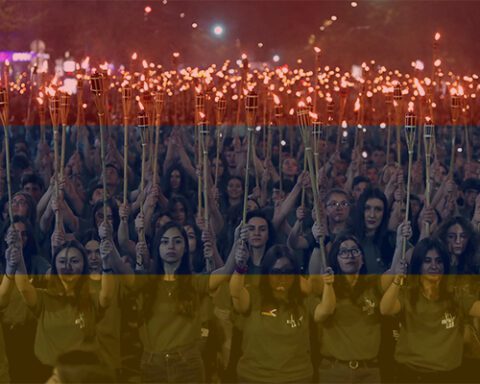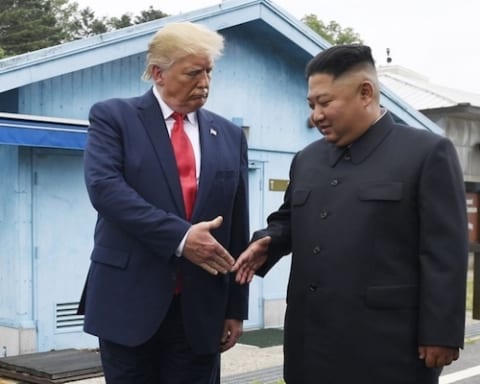1st of August – Lima Charlie’s South East Asia Week-in-Review News Briefing
Indonesia carries out first capital punishment of 2016: by firing squad
#Indonesia
On Thursday, Indonesia executed four convicted drug offenders, two Nigerians, one Senegalese and one Indonesian. Ten additional drug offenders, including three Indonesians, four Nigerians and one each from Pakistan, India, Zimbabwe and South Africa await their execution. These are the largest national executions since April 2015, when eight drug convicts were put to death, including two Australians, Andrew Chan and Myuran Sukumaran.
The act has garnered outrage from the United Nations, including UN Secretary-General Ban Ki-moon and High Commissioner for Human Rights Zeid Ra’ad Al Hussein of Jordan. According to the Agence France-Presse, Ban Ki-moon urged Indonesian President Joko Widodo to halt the imminent executions and declare a moratorium on the use of the death penalty saying “drug crimes are generally not considered to meet this threshold.”
Al Hussein said, “The increasing use of the death penalty in Indonesia is terribly worrying, and I urge the Government to immediately end this practice which is unjust and incompatible with human rights.” He added, “I find it deeply disturbing that Indonesia has already executed 19 people since 2013, making it the most prolific executioner in Southeast Asia.” Human rights groups and lawyers of past defendants have argued that convicted perpetrators can often be coerced into confessing through physical abuse.
President Joko Widodo however has taken the position that capital punishment is the only way to combat the national emergency his country is facing, as drug consumption in Indonesia is on the rise.
A CNN report explains that the executions take place at night by firing squad at Nusa Kambangan prison island in Cilacap, Central Java. For the families of the convicted, gunfire in the distance is the only confirmation that their loved one has been executed.
Indonesia is one of 33 countries around the would that still uses the death penalty for drug offenses. Other such nations include Iran, Iraq, Qatar, Somalia, and Yemen. Although it looks like time will not be on the side of the remaining ten prisoners, the international community could persuade Indonesia to declare a moratorium on the death penalty as it had between 2008 and 2012 when former president Susilo Bambang Yudhoyono was in power.
#Myanmar #Burma
While peace is being forged in Myanmar, clashes continue
On Wednesday, 17 ethnic armed groups (EAO) gathered in Kachin State’s town of Mai Ja Yang to discuss common ground on their path toward federalism in Burma and peace amongst the competing EAOs. The Kachin Independence Army, part of a 9 member ethnic alliance known as the United Nationalities Federal Council (UNFC), is hosting the conference.
In preparation for the 21st Century Panglong Conference, set for late August, the meeting laid out the framework for an EAO Federal Union, which the parties agreed would be their country’s own version of federalism. Nine principles were agreed upon focusing on sovereignty, equality, self-determination, establishment of a federal union, protections of ethnic rights, democratic rights, human rights, gender equality, a multi-party democratic system and secularism. The EAOs also set forth the discussion and endorsement of the Panglong manual, and the adoption of basic principles concerning a federal democratic union, security, defense, and amendment of the framework for political dialogue.
Despite the turnout of 17 EAOs, four were noticeably absent. These included the Ta’ang National Liberation Army (TNLA), The Myanmar National Democratic Alliance Army (MNDAA)—or Kokang—The National Socialist Council of Nagaland (NSCN-K) and the United Wa State Army (UWSA). The TNLA and the MNDAA absences came as no surprise, given the stipulations that these two groups must disarm before joining the peace process. This is considered by some to be a tactic employed by the Burmese military to create discourse among the EAOs. As for the UWSA, they had a previous meeting scheduled with State Counselor Aung San Suu Kyi at the same time as the Mai Ja Yang forum.
The NCSN-K’s absence has sparked the most curiosity. The NCSN-K is a splinter group that broke away from the original NSCN in the 1980’s, which was fighting for independence from India and now is seeking autonomy for the Naga people, a collection of several tribes from the northeast of India and northwest of Burma. The NSCN-K had an ongoing ceasefire with the Indian government since 2001. Last year, however, the group moved to retract itself from the agreement.
During the EAO meeting, the Burmese Army attacked Kachin Independence Army (KIA) positions. The KIA, along with 9 other EAOs, had opted out of signing a ceasefire agreement back in October, 2015 due to the lack of inclusivity of the NCA. The Burmese Army would not allow the TNLA, MNDAA and the Arakan Army to participate, considered by some to be another tactic employed to create discourse among the UNFC. The tactic backfired, and is seen as one of the reasons why the Union Solidarity Development Party, the Army’s proxy party, lost the November election to Aung San Suu Kyi and the National League for Democracy (NLD).
Total casualties are still unknown.
Meanwhile, in the Burmese capital, Suu Kyi met with the UWSA (Wa) and NDAA (Mong La) delegates on Friday afternoon. During a closed-door meeting, pledges were made for the Wa to stay in the Myanmar Union.
The UWSA is the largest of the EAO with around 20,000 to 30,000 troops armed with the latest weapons from China. In the past, the UWSA has pushed for an autonomous state. Having a ceasefire with the Burmese Government since 1989, has enabled them to enter various lucrative business deals, which include the illegal drug trade. In 2005 the Wa denounced opium poppy production in their area. However it is widely known they have moved into the methamphetamine trade.
Suu Kyi gave a speech about education and healthcare in the Wa’s and Mong La’s ethnic areas. According to the Irrawaddy, Suu Kyi stressed the need to achieve greater equality through education, such as more teachers that could speak the language of Burma’s ethnic minorities.
Although the Wa and Mong La’s capital regions are better off than other ethnic areas, both are still very poor and underdeveloped. The meeting appears to have given hope to the peace process, with the Wa and Mongla also set to meet Burma Army Chief, Snr-Gen Min Aung Hlaing and Dr. Tin Myo Win, the new government’s peace negotiators, in the coming months.
#Vietnam
China cyber attack shuts down airports
#DelayedGoodMorningVietnam
Tensions between China and Vietnam reached new heights this week, as a dangerous game of tit-for-tat played out between the two rivals.
In 2012, Beijing began issuing new passports with a map that included the “nine-dash line.” China’s claims to almost all of the South China Sea, were recently ruled invalid by an international tribunal on July 12th.
Last week, China asked Vietnam to investigate an alleged defacing of a Chinese passport by a Vietnamese customs agent. Apparently, obscenities were written over the map on the Chinese visitor’s passport, containing the “nine-dash line.” The BBC reported that the Chinese consulate in Ho Chi Minh City issued a statement calling the incident “shameless and cowardly,” adding that it had “stained the dignity of both China and its nationals.”Miss Zhong, the tourist to whom the passport belonged, told local media that she was “very disappointed at the personal qualities of Vietnamese officials.”
Vietnam, which has overlapping claims with China in the South China Sea, announced they were going to issue Chinese visitors with separate on-arrival visas instead. By issuing separate visas, Vietnamese authorities can avoid directly stamping the passport, thus demonstrating Vietnam’s stance of not recognizing the nine-dash line in any form.
Coincidentally, on Friday, cyber-attacks on Vietnam’s two major airports caused more than 100 flights to be delayed for up to one hour, according to the country’s aviation authorities. The first attack took place at Tan Son Nhat airport, in Ho Chi Minh City, followed by Hanoi’s Noi Bai airport. According to Thanhnien news, the hackers took control of the flight information screens and displayed distorted information about the South China Sea, insulting Vietnam and the Philippines. Flight operations and security systems at the airports were not disrupted.
Vietnamese authorities said that the attack was carried out by the infamous and powerful Chinese hacking group 1937cN. The group also hacked and left its logo on Vietnam Airlines’ website, stealing information on more than 400,000 members of the airline’s frequent flyer program. 1937cN released a statement on its website, calling it “irrational, unscientific” to blame the hacking incident on China.
The Civil Aviation Authority of Vietnam (CAAV) said in a press release Saturday that it has ordered other airports across Vietnam to tighten aviation security after hackers targeted computers systems at the airports in Hanoi and Ho Chi Minh City.
This attack could have been much worse if the hackers had interfered with flight operations and security systems. The big question now is how long before this tit-for-tat ends up in a tragic miscalculation.
#SouthChinaSea
The diplomatic jousting in the South China Sea continues
#CommuniqueBreakdown
Three weeks ago, the United Nation’s Permanent Court of Arbitration (PCA) at The Hague handed down a landmark verdict striking down China’s expansive claims to the South China Sea.
Since then China has been on the offensive, making the region quite tense for all stake holders.
Last week, the meeting of the ASEAN nations in Laos capital Vientiane only seemed to highlight the tension. The 10 member states of ASEAN were set to release a joint communique, which was intended to show that the ASEAN block championed the rule of law. However, the nations involved decided to omit any reference to the high-profile arbitration. This move seemed only to detract from the statement’s importance, to the benefit of the Chinese.
The Philippines, who had been lobbying hard for the ASEAN block to mention the landmark verdict, backed down from the issue in the hopes it might soften China’s tone and result in a speedy return to the negotiation table. The Philippines also accused Cambodia and Laos of being leveraged by China, therefore obstructing the efforts to release a statement mentioning the ruling and China by name. Cambodia recently received a $600 million dollar aid package from China.
Cambodia firmly rejected the accusations, stating that it was the Philippines who withdrew the arbitration verdict from the joint communique.
Critics of the meeting have said it wasn’t a big win for anyone, even China. Ian Storey, a Senior Fellow at the Institute of Southeast Asian Studies, said that “Neither China nor ASEAN emerged from the Vientiane meetings with honor … It’s a sad state of affairs when expectations of ASEAN being able to do anything to lower tensions in the South China Sea are zero, and instead the focus is on whether it can get its act together.”
On Wednesday, Chinese Foreign Minister Wang Yi said in a statement that three countries were “fanning the flames” of regional tension. This was likely a reference to the United States, Japan, and the Philippines. Mr. Wang also stated, “Now it is the time to test whether you are peacekeepers or troublemakers,” as reported by the Associated Press.
The Straits Times, a Singaporean publication, reported that US Secretary of State John Kerry was “very satisfied” with the joint statement, adding that it championed the rule of law, and the omission of reference to the arbitration did not detract from its importance.
Also reported in The Straits Times, Mr. Kerry said, ”If you read the communique paragraph per paragraph, I was very satisfied that the communique clearly referenced all legal rights, all legal decisions, all legal processes, without mentioning the arbitration.” Mr. Kerry when on to say that the Philippines’ tactic was meant to push forward talks to resolve disputes over the South China Sea. “Sometimes, frankly at a meeting like that and in diplomacy, you don’t always have to include every single word that may, in fact, sometimes make it harder to get to the dialogue that you want to get to.”
While diplomatic jousting continues, China and Russia announced they will hold “live fire” naval exercises in the disputed waters sometime in September. Such a declaration only seems to detract from their claims that other nations are “fanning the flames” of war.
On Tuesday, a Japanese coast guard ship, the Kojima, docked in Vietnam’s central coastal city of Da Nang. The Japanese crew will also pay a courtesy call to leaders of Da Nang People’s Committee and participate in sporting activities with Vietnamese coast guard officers. This is not the first time the Japanese coast guard has paid a visit to Vietnam. Yet, at a time of heightened tensions in the South China Sea, the visit may not be just a friendly courtesy call.
+++ End
For up-to-date news about South East Asia, please join us on Twitter at @LimaCharlieNews
Lima Charlie provides global news, analysis and opinion by military veterans and service members Worldwide.
#ASEANNews #ASEAN #LimaCharlie #LimaCharlieNews






![Blossoming Russo-Turkish alliance leaves U.S., NATO behind [Lima Charlie News]](https://limacharlienews.com/wp-content/uploads/2019/07/Russia-Turkey-alliance-leaves-U.S.-NATO-behind-480x384.png)



